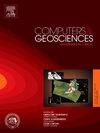Why the relational data model matters for climate data management
IF 4.4
2区 地球科学
Q1 COMPUTER SCIENCE, INTERDISCIPLINARY APPLICATIONS
引用次数: 0
Abstract
Efficient data management of climate data banks, in particular those generated by Global or Regional Climate Models, is an important requirement for precise understanding of current changes in the climate system. Current data management practices in the climate community are based on the analysis of binary files for storage of multidimensional arrays that require ad hoc software libraries for accessing the data. Several approaches are being developed to ease and facilitate climate data management and data analysis. However, the theoretical foundations that cause climate data manipulation difficulties remain unchallenged. The Relational Data Model was proposed as a formal solution for database management based on mathematical logic. It has been widely accepted in the industry and has survived the test of time. However, the foundational principles of the Relational Data Model have been overlooked by the climate data management community, mostly due to a lack of emphasis in the relevance of mathematical logic for database management and misunderstanding between physical and logical levels of abstraction. As a result, climate data management workflows lack the rigor and formality provided by the Relational Data Model. This work explains the Relational Data Model at the logical level of abstraction and provides the arguments, clarifies the misconceptions, and justifies its adoption for climate data management in the context of gridded data generated by climate models.
为什么关系数据模型对气候数据管理很重要
对气候数据库,特别是由全球或区域气候模式产生的气候数据库进行有效的数据管理,是精确了解当前气候系统变化的重要要求。当前气候界的数据管理实践是基于对多维数组存储的二进制文件的分析,这需要专门的软件库来访问数据。目前正在制定若干方法,以简化和促进气候数据管理和数据分析。然而,造成气候数据操纵困难的理论基础仍然没有受到挑战。关系数据模型是一种基于数学逻辑的数据库管理的形式化解决方案。它已被业界广泛接受,并经受住了时间的考验。然而,关系数据模型的基本原则被气候数据管理界所忽视,主要是由于缺乏对数据库管理的数学逻辑相关性的强调,以及物理和逻辑抽象层次之间的误解。因此,气候数据管理工作流缺乏关系数据模型所提供的严谨性和正式性。这项工作在抽象的逻辑层面上解释了关系数据模型,并提供了论据,澄清了误解,并证明了在气候模型生成的网格数据的背景下将其用于气候数据管理。
本文章由计算机程序翻译,如有差异,请以英文原文为准。
求助全文
约1分钟内获得全文
求助全文
来源期刊

Computers & Geosciences
地学-地球科学综合
CiteScore
9.30
自引率
6.80%
发文量
164
审稿时长
3.4 months
期刊介绍:
Computers & Geosciences publishes high impact, original research at the interface between Computer Sciences and Geosciences. Publications should apply modern computer science paradigms, whether computational or informatics-based, to address problems in the geosciences.
 求助内容:
求助内容: 应助结果提醒方式:
应助结果提醒方式:


